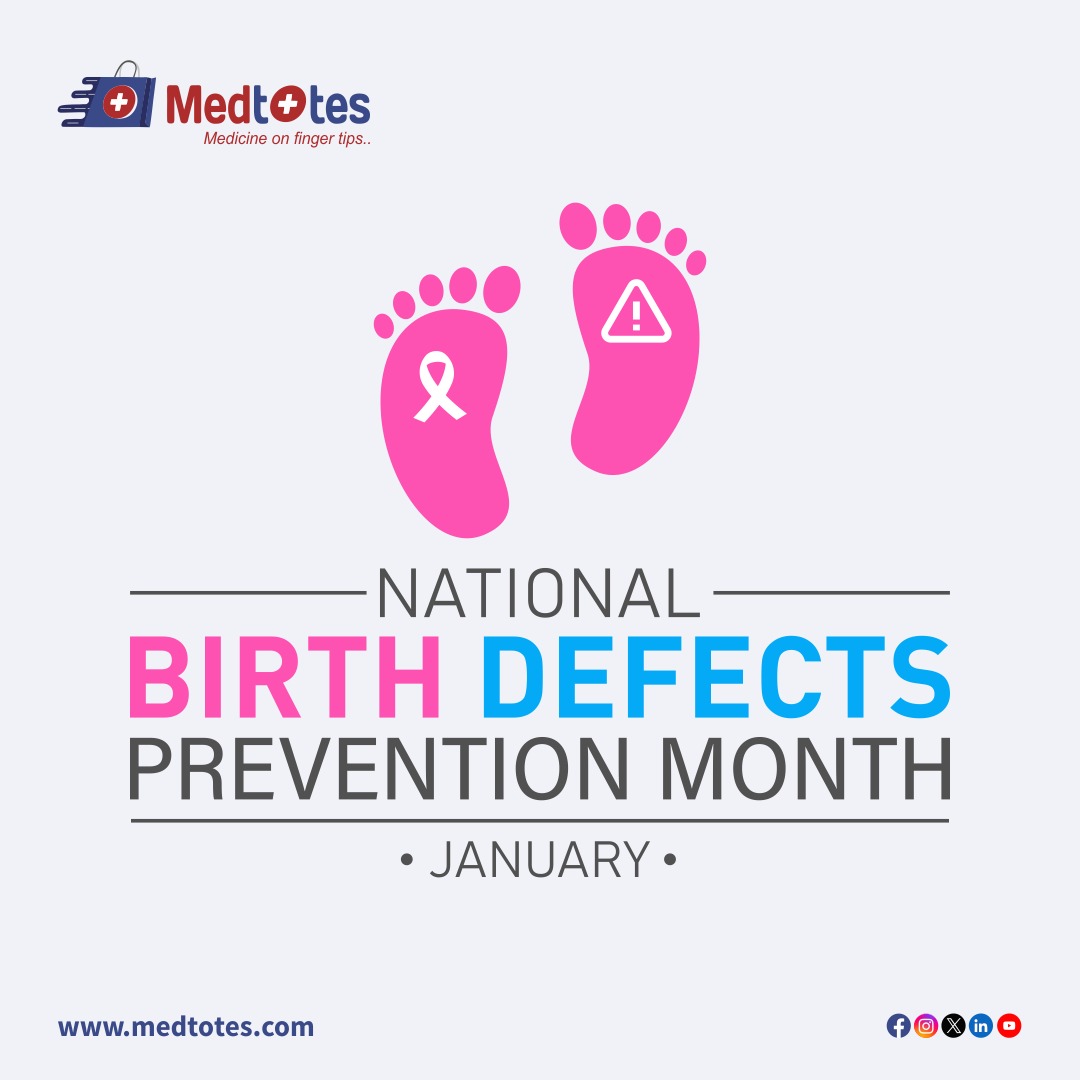INTRODUCTION
National Birth Defects Prevention Month is observed annually in January, aimed at raising awareness and promoting education about birth defect prevention. It emphasizes the importance of prenatal care, genetic counseling, and the collective responsibility to ensure the health and well-being of future generations.
UNDERSTANDING BIRTH DEFECTS
Birth defects are structural or functional abnormalities that occur during fetal development, often before a woman knows she’s pregnant. They affect various body parts, including the heart, brain, limbs, and internal organs. While some are unavoidable due to genetic factors, many can be prevented or mitigated through informed choices and proper medical care.
AWARENESS IS IMPORTANT
It can help individuals make informed decisions about their reproductive health and take the necessary precautions to reduce the risk of birth defects. Prenatal care allows healthcare professionals to monitor the health of both the mother and the developing fetus, which can help identify any potential issues early on.
GENETIC COUNSELING
- Genetic counseling helps individuals and couples understand their family history and potential genetic risks, enabling informed decisions about family planning and reproductive options.
- This knowledge empowers them to reduce the risk of passing on genetic conditions.
- Advancements in medical technology, such as prenatal genetic testing, can help identify potential birth defects and allow for early interventions.
- By prioritizing prevention and collective responsibility, we can work towards healthier outcomes for future generations and promote healthier pregnancies.
CONCLUSION
National Birth Defects Prevention Month encourages unity in promoting a healthier future. Emphasizing prenatal care, genetic counselling, and healthy lifestyle choices can contribute to a world where every child can thrive, impacting the well-being of generations to come.

